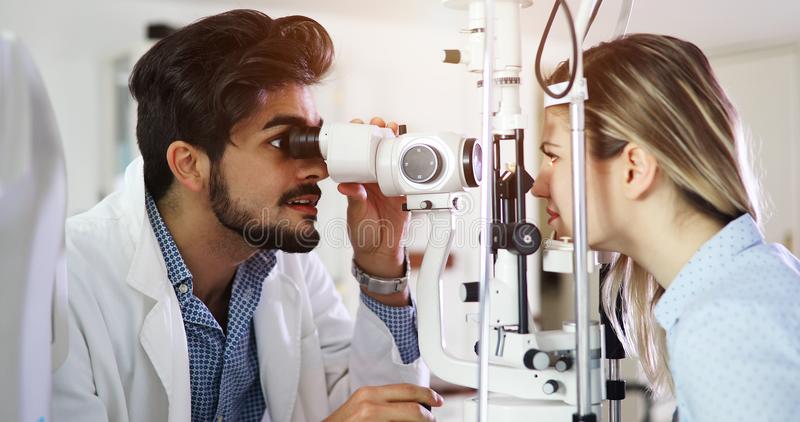As one of the most important organs in our body, our eyesight is something we rely on every day. However, not everyone is blessed with perfect vision, and that’s where an eye specialist comes in. An eye specialist Dubai, also known as an ophthalmologist, is a medical doctor who specializes in diagnosing and treating eye diseases and disorders.
In this article, we’ll take a closer look at the role of an eye specialist and the common eye conditions they treat, including eyelid surgery.
What Does an Eye Specialist Do?
An eye specialist is a medical professional who specializes in eye care. They diagnose and treat eye conditions, prescribe medications, and perform surgical procedures when necessary. Eye specialists have extensive training and education in the field of ophthalmology and are licensed to practice medicine and surgery.
Some of the common tasks performed by an eye specialist include:
- Conducting comprehensive eye exams to check for vision problems, eye diseases, and other eye-related conditions
- Prescribing corrective lenses, such as glasses or contact lenses, to improve vision
- Administering medications to treat eye infections, allergies, and other eye conditions
- Performing surgical procedures, such as cataract surgery, LASIK, and eyelid surgery, to correct vision problems and treat eye diseases
Common Eye Conditions
There are several common eye conditions that an eye specialist may diagnose and treat. Here are some of the most common eye conditions:
Myopia
Myopia, also known as nearsightedness, is a condition where objects that are far away appear blurry. It occurs when the shape of the eye causes light to focus incorrectly on the retina. Myopia can be corrected with eyeglasses, contact lenses, or refractive surgery.
Hyperopia
Hyperopia, also known as farsightedness, is a condition where objects that are close appear blurry. It occurs when the shape of the eye causes light to focus incorrectly on the retina. Hyperopia can be corrected with eyeglasses, contact lenses, or refractive surgery.
Astigmatism
Astigmatism is a condition where the cornea or lens of the eye is irregularly shaped, causing blurry or distorted vision. Also, astigmatism can be corrected with eyeglasses, contact lenses, or refractive surgery.
Cataracts
Cataracts are a common condition where the lens of the eye becomes cloudy, causing blurry vision. Moreover, cataracts usually develop slowly and can be treated with surgery to replace the cloudy lens with an artificial one.
Glaucoma
Glaucoma is a condition where the optic nerve, which connects the eye to the brain, is damaged. It often occurs due to high pressure in the eye and can cause blindness if left untreated. Treatment for glaucoma typically involves medications or surgery to lower the pressure in the eye.
Conjunctivitis
Conjunctivitis, also known as pink eye, is a common eye infection that causes redness, itching, and discharge from the eye. It can be caused by bacteria, viruses, or allergens and can be treated with medications, such as antibiotics or antihistamines.
Eyelid Surgery
Eyelid surgery, also known as blepharoplasty, is a surgical procedure that involves removing excess skin and fat from the eyelids to improve the appearance of the eyes or to correct functional problems. It is a common cosmetic procedure that can be used to treat drooping eyelids, bags under the eyes, and other conditions that affect the eyelids.
During the procedure, the eye specialist will make incisions in the eyelids and remove excess skin and fat. The incisions are then closed with sutures or surgical glue. Recovery from eyelid surgery in Dubai typically takes several days, and patients may experience swelling and bruising around the eyes. It is important to follow the eye specialist’s post-operative instructions carefully to ensure proper healing.
Conclusion
In conclusion, an eye specialist Dubai plays a crucial role in diagnosing and treating a wide range of eye conditions, from simple refractive errors to more complex diseases such as glaucoma and cataracts. If you are experiencing any problems with your vision, it is important to schedule an appointment with an eye specialist as soon as possible.
With their specialized training and expertise, an eye specialist can help you maintain healthy eyesight and improve your quality of life. And if you are considering eyelid surgery for cosmetic or functional reasons, be sure to consult with a qualified eye specialist to discuss your options and ensure the best possible outcome.
For more….. Click here.
You may also like
-
Effortless Pigmentation Mark Removal: Exploring the Benefits of Yellow Laser Treatment
-
Pelvic Mesh Implants: What You Should Know About Potential Side Effects
-
How to Recover From a Foot Injury
-
Finding Balance: 7 Stores Offering the Best Traditional Chinese Medicine for Stress Relief
-
Sildisoft 100 and Valentine’s: Crafting Moments of Love

